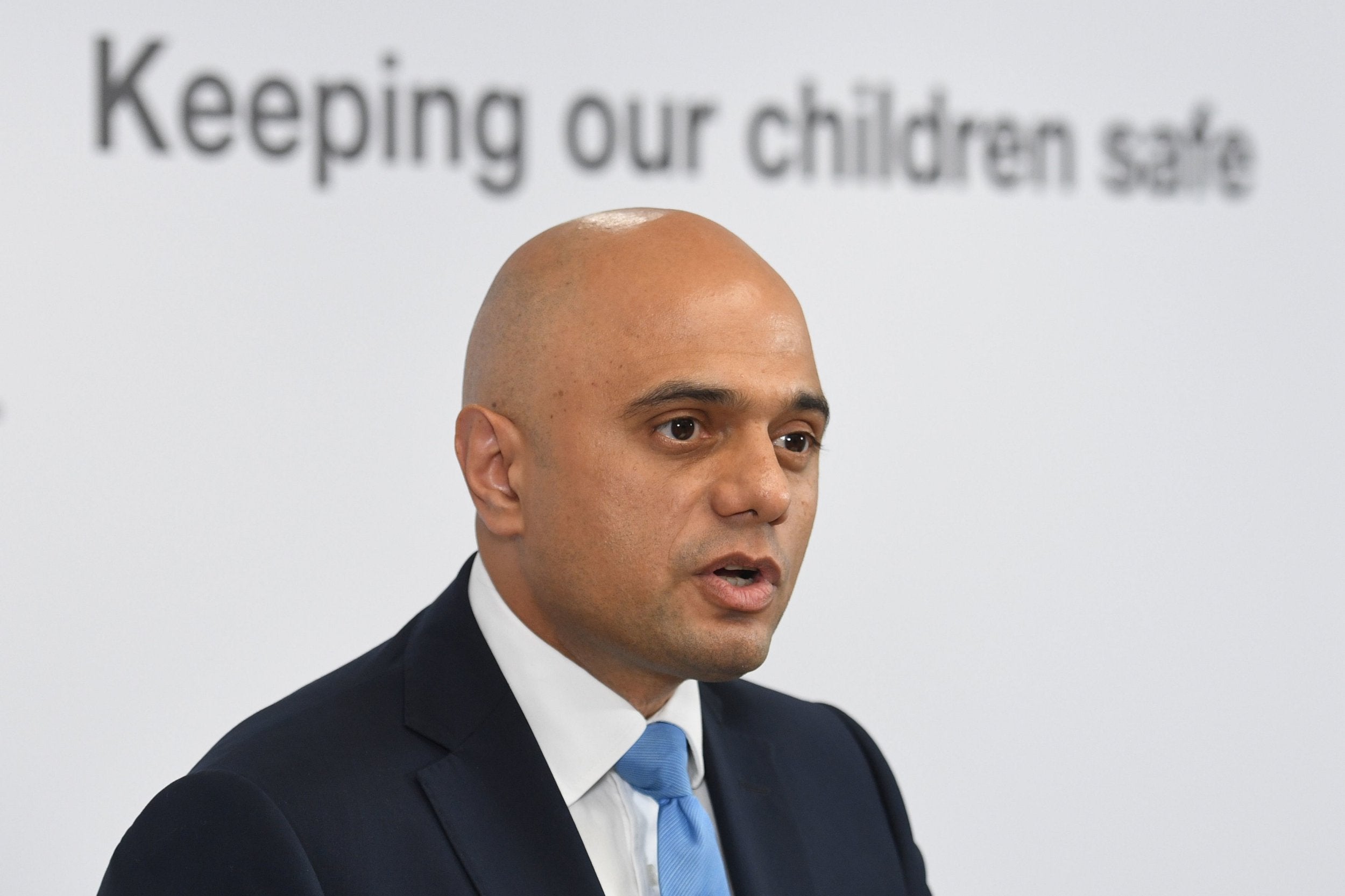Government plans to jail Britons entering 'designated areas' abroad for 10 years under new terror laws
Amendments to Counter-Terrorism and Border Security Bill could also see people jailed for viewing terrorist material online on a single occasion

Your support helps us to tell the story
From reproductive rights to climate change to Big Tech, The Independent is on the ground when the story is developing. Whether it's investigating the financials of Elon Musk's pro-Trump PAC or producing our latest documentary, 'The A Word', which shines a light on the American women fighting for reproductive rights, we know how important it is to parse out the facts from the messaging.
At such a critical moment in US history, we need reporters on the ground. Your donation allows us to keep sending journalists to speak to both sides of the story.
The Independent is trusted by Americans across the entire political spectrum. And unlike many other quality news outlets, we choose not to lock Americans out of our reporting and analysis with paywalls. We believe quality journalism should be available to everyone, paid for by those who can afford it.
Your support makes all the difference.A new law that could see people imprisoned for up to 10 years if they enter “designated areas” abroad is being proposed by the government.
Without announcing the plan, it has introduced a completely new clause to the Counter-Terrorism and Border Security Bill, which MPs and peers have already expressed human rights concerns about.
“Entering or remaining in an area” designated as a terror risk by the home secretary would become a criminal offence under the Terrorism Act 2000.
Anyone found guilty of the proposed crime could be jailed for up to 10 years unless they had a “reasonable excuse” or were already there when it was designated.
“In making such regulations the Secretary of State would need to be satisfied that it is necessary to restrict UK nationals and residents from entering or remaining in the area for the purpose of protecting the public from a risk of terrorism,” a government document says.
The draft law, which could be applied to Isis strongholds in Syria and Iraq, says the government would review if and when designations should be lifted.
The human rights group Liberty called the proposals “deeply concerning”. Gracie Bradley, its policy and campaigns manager, said: “Keeping the public safe from terrorism is an important and difficult task. But making travel a crime is the wrong approach.
"People visiting family members, helping others through humanitarian relief or travelling for work could face up to 10 years in prison. Academic inquiry, investigative journalism, family relationships and acts of solidarity will all suffer.

"The government should focus on criminalising acts of terrorism, not international travel, and scrap this new offence.”
Sajid Javid said the proposed law has the "full support" of the security services and called on MPs to support amendments tot he Counter-Terrorism and Border Security Bill when they come before parliament.
“Those who travel abroad to fight in terrorist conflicts pose a threat to us all and need to be stopped," the home secretary added.
“This offence will help make our streets a safer place, with those travelling to a designated area facing up to ten years in prison."
Australia has already introduced a similar law banning travel to “declared areas”, and an official report on the operation of UK terror laws in 2015 said the concept was one of several ideas to fill gaps in current offences.
The Independent Reviewer of Terrorism Legislation said it could “avoid the need to plot the specific actions of a suspect at a distance of over 2,000 miles and in circumstances where correspondent policing and legal systems are wholly absent”.
One senior police officer suggested such an offence would be “incredibly helpful”, but the report concluded: “On balance, this offence would not be worthwhile for the UK. First, the exceptional defences place the burden of proof on the honest and worthy to show entry into the prohibited area for a legitimate purpose…the main effect will be to catch ‘jihadi brides’ rather than jihadi fighters, a category which is probably more in need of counselling than imprisonment.
“A final problem is that the area controlled by Isis is fluid, so the notion of a fixed territory will require constant reformulation.”
MPs, peers and the United Nations have already raised human rights concerns over pre-existing measures in the Counter-Terrorism and Border Security Bill, which also proposed to make accessing propaganda online “on three or more different occasions” a criminal offence.
The Joint Human Rights Committee found the wording of the law vague and told the government it violated Article 10 of the European Convention on Human Rights (ECHR).
“This clause may capture academic and journalistic research as well as those with inquisitive or even foolish minds,” MPs and peers concluded in July.
“The viewing of material without any associated intentional or reckless harm is, in our view, an unjustified interference with the right to receive information…unless amended, this implementation of this clause would clearly risk breaching Article 10 of the ECHR and unjustly criminalising the conduct of those with no links to terrorism.”
The committee called for officials to narrow the new criminal offence so it requires “terrorist intent” and defines how people can legally view terrorist material.
In response, the government scrapped the “three clicks” rule entirely and broadened the concept of viewing to make the draft law read: “A person commits an offence if…the person views or otherwise accesses by means of the internet a document or record containing information of that kind.”
It also added a clause saying a “reasonable excuse” includes having “no reason to believe, that the document or record in question contained, or was likely to contain, information of a kind likely to be useful to a person committing or preparing an act of terrorism”.
The modifications came after the United Nations Special Rapporteur on the right to privacy accused the British government of straying towards “thought crime” with the law.
Professor Joe Cannataci said the three clicks benchmark seemed “arbitrary” and added: “It seems to be pushing a bit too much towards thought crime…the difference between forming the intention to do something and then actually carrying out the act is still fundamental to criminal law.”
Although journalists, academics and people with a “reasonable excuse” would be protected from prosecution, he said that everyone’s freedom to access information “should be protected against such proposals becoming too draconian”.
Max Hill QC, the outgoing Independent Reviewer of Terrorism Legislation, told the Joint Human Rights Committee that the law’s net was “far too fine”.
The future Director of Public Prosecutions said he found lengthy prison sentences “difficult to countenance when nothing is to be done with the material, it is not passed to a third party, and it is not being collected for a terrorist purpose”.
The plans have been branded “Orwellian” by human rights groups but the government emphasised that they are being scrutinised by parliament and the courts.
In its formal response to the Joint Human Rights Committee, the government said it needed to update the Terrorism Act 2000 “for the digital age”.
“It would be neither helpful nor in fact possible to define on the face of the legislation what does and does not constitute legitimate activity for the purpose of the reasonable excuse defence,” it said.
Ben Wallace, the security minister, criticised the committee for not taking evidence from the police and Crown Prosecution Service and quoted the head of national counterterror policing saying that offences previously considered minor “are now seen as indicative of a volatile and unpredictable actor”.
“Operational experience has shown that patterns and methods of radicalisation are changing, with the time taken from radicalisation to carrying out attacks reducing,” Mr Wallace said.
“As the committee notes in its report, when powers impact on human rights, they must be ‘necessary in the pursuit of a legitimate aim, and proportionate to that aim’.
“I strongly believe that stopping terrorism is a legitimate and just aim, and that given the nature of the threat we face, enabling law enforcement agencies to intervene earlier to stop such plots is a proportionate way to protect the public from the great harm caused by a terrorist attack.
“The government has a duty not only to protect the rights of those who are investigated and prosecuted, but to preserve the fundamental right to life of those who may be targeted by terrorist and hostile state activity.”
The bill is to be considered by parliament again next week.
Join our commenting forum
Join thought-provoking conversations, follow other Independent readers and see their replies
Comments